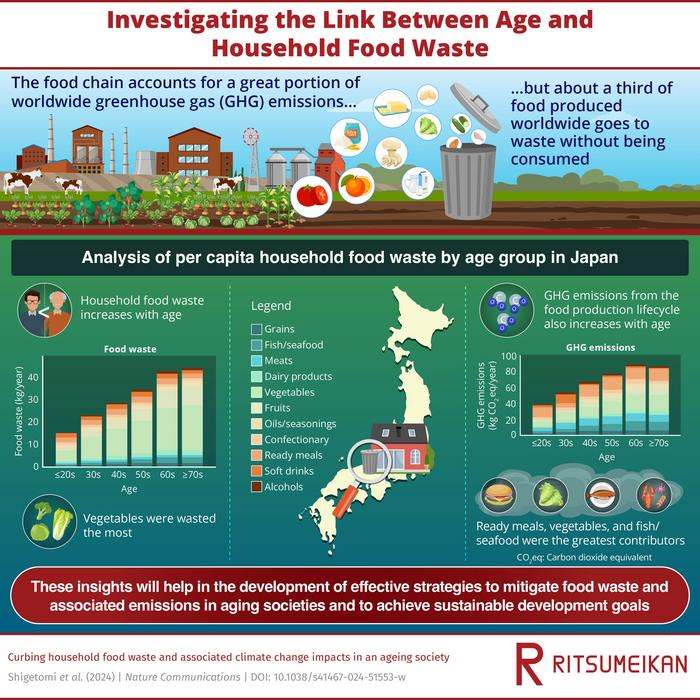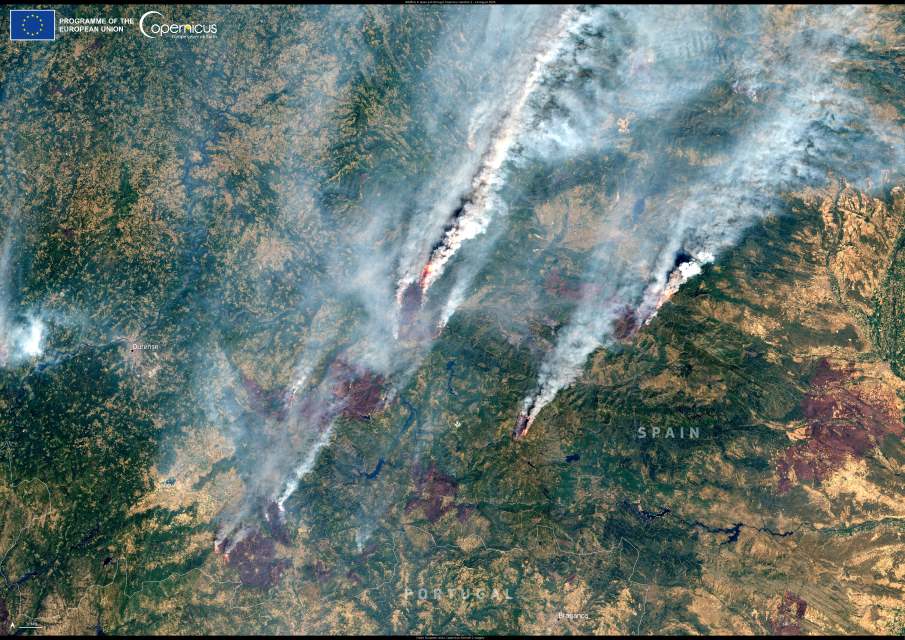A recent study has uncovered significant insights into the relationship between household food waste and Japan’s aging population, highlighting an urgent need to develop strategies that can curb both waste and associated greenhouse gas emissions.
In 2021, Japan’s households generated 2.47 megatons of food waste, much of which was still edible, according to governmental reports. The production and disposal of food not only waste valuable resources but also contribute to environmental degradation.

Globally, about a third of all food produced is wasted, and Japan’s food waste statistics are a stark reminder of how urgent the problem is. However, despite its scale, little is known about the factors driving food waste across different sectors of the population, especially when considering emissions linked to discarded food.
A research team, led by Associate Professor Yosuke Shigetomi from Ritsumeikan University, has taken an important step in addressing this gap. Alongside researchers from Nagasaki, Kyushu, and Tokyo universities, the team conducted an in-depth analysis of food waste trends across various demographic groups in Japan.
Their findings, published in Nature Communications, identify critical patterns between food waste, greenhouse gas emissions, and age demographics.
By analyzing data from national food consumption and waste surveys, the researchers examined how over 2,000 different food products contribute to household waste. They focused on key variables such as the edible and inedible portions of food and their impact on emissions. In doing so, the team revealed an unexpected link between household age and waste levels: elderly households, particularly those headed by individuals over 60, produced nearly twice as much food waste as households with younger heads, typically in their 30s.
Professor Shigetomi emphasized that vegetables were the most frequently discarded food in Japanese households, followed by ready-made meals, fish, and seafood. These foods also had the highest associated greenhouse gas emissions, with older households leading in waste and emissions from these categories.
“An aging population would be one of the hidden but key factors for consideration when proposing strategies to reduce food waste directly generated by households,” stated Dr. Shigetomi. “It will be essential to pay closer attention to the dietary preferences and lifestyles among different generations, particularly under the desire of dietary shifts towards vegetarianism for combating climate change.”
The link between age and waste might be driven by changing dietary preferences, cooking habits, or issues such as the physical and cognitive challenges faced by older individuals in managing food properly.
The role of vegetables as a major source of both food waste and emissions is a concern. Although vegetables are a staple of the Japanese diet, improper storage or over-purchasing frequently leads to spoilage. With emissions from the production, transportation, and disposal of food playing a significant role in climate change, targeted interventions could significantly reduce the environmental footprint of household food waste.
One noteworthy aspect of the research is the collaboration between leading academic institutions in Japan. Ms. Asuka Ishigami from Nagasaki University played a crucial role in the data collection and preliminary analysis of this study. “Ms. Asuka Ishigami was my supervised student at my former affiliation, Nagasaki University. Although she graduated as a bachelor in 2022, she worked hard to collect all the fundamental data and conduct the initial analysis for this study through her dissertation,” said Shigetomi.
The study’s findings carry broad implications for Japan’s strategies to tackle food waste and environmental sustainability. As Japan faces a rapidly aging population, understanding the behaviors and preferences of older generations becomes crucial to designing effective policies. Shigetomi pointed out that the trend towards plant-based diets to combat climate change would require a nuanced approach, given that vegetables themselves contribute significantly to both waste and emissions.
The team’s work suggests that targeted interventions – especially focused on the elderly population – could reduce food waste and associated greenhouse gases. Educational campaigns tailored to the specific needs of older generations might help individuals better plan meals, store food more effectively, and reduce waste.
Journal Reference:
Shigetomi, Y., Ishigami, A., Long, Y. et al. ‘Curbing household food waste and associated climate change impacts in an ageing society’, Nature Communications 15, 8806 (2024). DOI: 10.1038/s41467-024-51553-w
Article Source:
Press Release/Material by Ritsumeikan University
Featured image credit: Freepik




